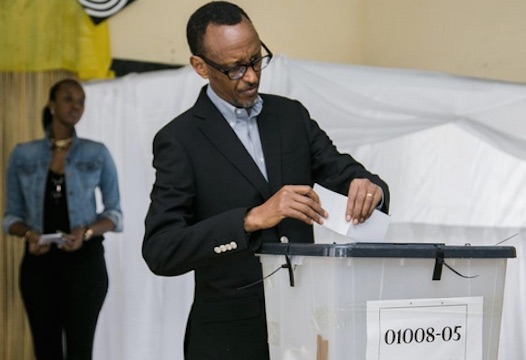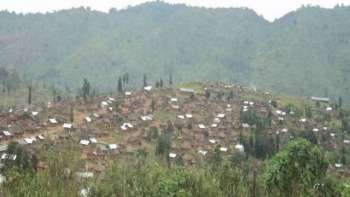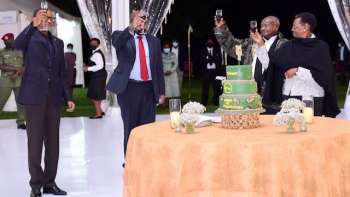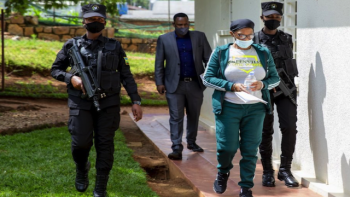"What do you do when a country's democracy is being dismantled by its own people? Paul Kagame has been President of Rwanda for 14 years. He could serve up to 17 years more. Rwandans have voted overwhelmingly to change the constitution, to let him run again and again. The White House immediately criticized the referendum. President Obama has been consistent in his call for African leaders to adhere to term limits. But Rwanda's approach — using a referendum to give voters the power to support a constitutional amendment — may be one of the trickiest to counter, " United States National Public Radio (NPR) correspondent Gregory Warner said (see NPR here), while reporting on the sham referendum that just happened in Rwanda to allow the Rwandan dictator to remain in power. NPR is a US-based privately and publicly funded non-profit membership media organization.
"Rwanda today has no civic freedom, no free press or political opposition. It is a small country dominated by one leader," Gregory Warner continued.
However, the question remains. It is clear Paul Kagame has used maneuvers to give the impression of democratic changes. These maneuvers have been widely condemned. As, both the European Union High Representative Federica Mogherini, on behalf of the EU and US Ambassador Samantha Power, on the behalf of the Unites States Government and the UN Security Council, said on constitutional review in Rwanda, President Kagame must follow through on the commitments that he has made many times in the past to allow the next generation of leaders to come forward, by stepping down at the end of his term in 2017.
Now the valid question that NPR asked is what would become Rwanda after Paul Kagame. Paul Kagame has managed to create a void, dismantling the government institutions not centered around him. The autocratic situation in Rwandan was well summarized by Under Secretary of State for Civilian Security, Democracy, and Human Rights Sarah Sewall during her trip to the Democratic Republic of the Congo in late October 2015:
"Rwanda, while it has made remarkable progress over the last decade against all odds –increasing economic growth and youth literacy, dramatically lowering child and infant mortality –has not kept pace with progress on the political front. There have been unmistakable efforts in that country to stifle critical voices in civil society, in the media, and in the political opposition. And those who speak out often live in fear and face harassment or intimidation. Some have simply disappeared."
According to NPR, "the very political vacuum that Kagame has created also makes him exceptionally hard to unseat." But again, NPR emphasizes that the risks are there, if one looks at what happens in the region,
"Rwanda's southern neighbor, Burundi, has plunged into violence over the third-term bid by that country's president, Pierre Nkurunziza. To the west, the Democratic Republic of Congo (DRC) threatens to go over the edge for the same reason."
Meanwhile, Paul Kagame, perhaps to save face, remains defiant. In a speech after the referendum to allow himself to remain in power, he said that: "Statements that acknowledge our good results while depicting Rwandans as people incapable of either thought or feeling are not critical. They are deliberately abusive."
The reality is that Paul Kagame is trying to use the Rwandan people to dismantle democracy. Will he be able to avoid a situation similar to the one in Burundi and the DRC?
















